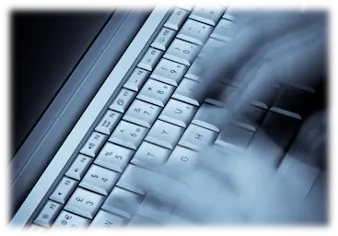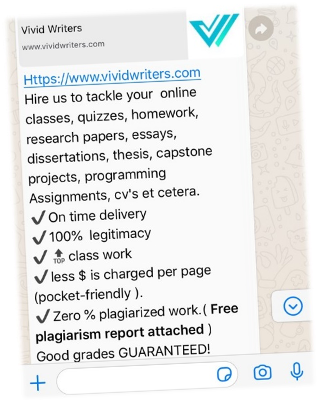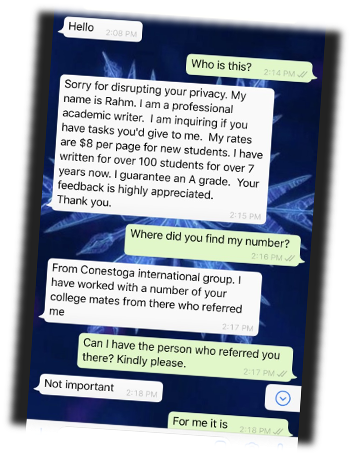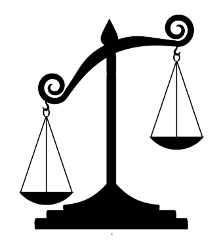What Faculty Should Know About Contract Cheating
By Cory Scurr, PhD, Academic Integrity Coordinator
In the Fall of 2018, I received an email from a Hotmail account named “JRmoneyy.” (Since they spelled money with two “y”s, I knew I already had questions about the author and the message content). Here is an abridged version:
“Hi Cory,
I would like your attention to discuss and report academic misconduct amongst a student that goes to Conestoga College, Doon campus. His name is X and his student ID number is X. To begin with X had contacted me to complete an assignment for (Course X) that was worth 15% of his grade. He had offered to pay me to complete the assignment but did not pay. I am a third party he had contacted and I do not go the school. […] I can provide you email communication with him for further proof. Please investigate on this matter and other papers he has written.”
I contacted the student named by JRmoneyy, and his response was unexpected: “But I did pay him,” the student assured me.

Within ten minutes of communicating with student X, who had just openly admitted that he had purchased his assignment, I received another email from JRmoneyy explaining there must have been some sort of mistake and to please ignore his previous email. JRmoneyy remains anonymous.
Defining Contract Cheating
In my role as Academic Integrity Coordinator, I provide to the College support and resources to ensure honest conduct in course work. Serving in this position, I’ve learned much about contract cheating. Contract cheating occurs when a student has another (whether for pay, for trade, or for favour) complete an academic assessment (in total or part) for the student who then submits it for academic credit. For more insights from a Canadian perspective, see Dr. Sarah Eaton’s Blog Post.
Contract cheating is a global industry, and it exists due to broad, numerous, and interrelated factors. For instance, a student may decide to pay someone to complete their assigned course work out of pure laziness; however, other reasons for contract cheating can include the intensified commercialization of higher education credentials, familial obligation to succeed, and soaring student debt. In the last instance, paying even more money to have someone do students’ course work may seem ironic at first, but the pressure to pass the course/program can push students into the open embrace of ghostwriters (the paid authors). From a student’s perspective, a few extra hundred (or even thousand) dollars may be worthwhile to ensure a quality assignment when they feel incapable of doing good work themselves, or are simply pressed for time.
Many of the factors that drive students to contract cheating are out of our direct control. This teaching tip offers two general insights into what we should understand about contract cheating, and a recommendation about what we, as educators, can control.
1st Insight: Target Marketing


Contract cheating companies are targeting our students, and preying on their weaknesses. The WhatsApp and Instant Messenger screen shot images, as shown in this post, are typical examples of the messages that many of our students receive “out of the blue,” so to speak, from contractors. When I show students similar images, many are not surprised, and they tell me they receive these types of messages on a regular basis.
The point is that contractors are getting ahold of our students’ contact information, targeting them, then normalizing their service. Many contracting services acknowledge how it is tough for students to balance work and school while maintaining good grades, but present their services as a valid solution. They also hone in on the challenges of some of our international students, sympathizing with language barriers and cultural difficulties. In other words, these contracting services use keen marketing strategies to target our students and relentlessly pursue their business.
2nd insight: The Power Imbalance

JRmoneyy’s email to me highlighted the immense power that contractors have over students who do business with them. At any time, the contractor can decide to blackmail the student for more money, or force an agreement to do more assignments. In the latter case, a contractor may say to a student, “You must agree to have me complete x number of assignments or else I’ll turn you in to your institution.” While hiring a ghostwriter is not acceptable, students are unknowingly putting themselves in positions where they can be threatened and induced to pay for more contract cheating.
Truthfully, these are rare occasions. The message I send to students, however, is to be wary of the control they forfeit if they engage in this type of relationship.
I’m typically not one to deploy fear tactics to dissuade certain behaviours, but both students and faculty benefit from understanding that contract cheaters create a compelling opportunity and a power imbalance that, ultimately, puts our students in a disadvantaged position.
Shining a Light on Contract Cheating
If we can’t control factors like the internationalization or the commercialization of higher education, or that our students are being targeted by contracting services, what do we do?

The world of contract cheating used to live in the shadows. Now, it is our duty to cast them into the floodlights around campus (even the virtual campus) to show that we, as an institution, know all about the business of contact cheating. I urge faculty to communicate to students that they are aware of contract cheating and that there are real perils that accompany this dark side of education. If faculty show students that they know as much, if not more, about the contract cheating industry, perhaps students won’t feel that buying their assignments is the best or only option.
As Academic Integrity Coordinator, my message to students is always the same: turn away from the contractors and look inward to us, the faculty, staff, and support services at Conestoga who are here to help them succeed.
If faculty provide a similar message, then students will be reassured that we, not contract cheaters, are here to empower them and support their academic success.
Learn more about academic integrity at Conestoga by visiting the Academic Integrity (Library Services) web page.



